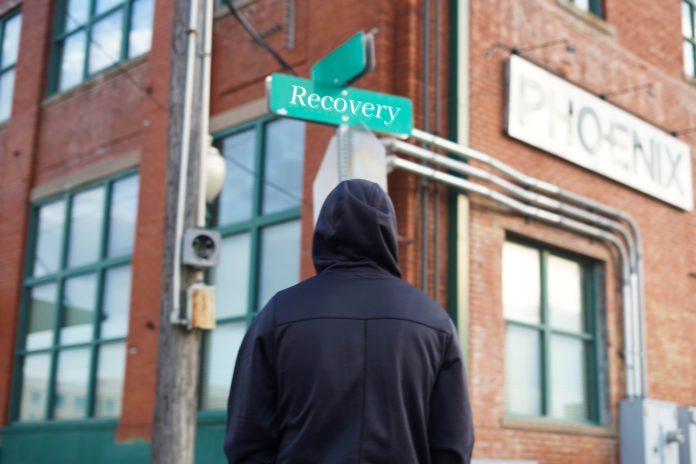Emily Cousins | Staff Writer
People with substance use disorders are seen by some as harmful or toxic, but the Beauchamp Addiction Recovery Center is working to help those struggling, destigmatize addiction and normalize recovery.
September marks National Recovery Month, and the BARC staff members and volunteers are using this month to educate others about recovery and focusing on providing a safe place on campus.
Newport Beach, Calif., junior Dinny Stevens, Naloxone Distribution Program intern, said people dealing with substance or alcohol abuse disorder in recovery are seen as weak, but she hopes people will see how strong they are as they fight everyday to choose recovery.
“Recovery is opportunity. It’s a chance for a new start,” Stevens said.
National Recovery month is an opportunity to educate others about what language to use when discussing addiction, Assistant Director of wellness and recovery services Lilly Ettinger said.
“We don’t call eating disorders food abuse, and we don’t call gambling disorders abuse, but we still use this really pejorative language when it comes to addiction,” Ettinger said.
Ettinger dealt with an alcohol use disorder during her undergraduate years at Baylor. She took a break and went to outpatient care. At the time, the BARC did not exist.
“I felt completely alone at Baylor like I was the only person who would ever struggle with addiction, which spoiler alert, totally not true. But that was my own internalized shame and stigma … I ended up drinking again, just because I wanted to fit in,” Ettinger said.
Ettinger said she left Baylor again in 2009 and returned to finish her degree in 2011. She and some friends in recovery formed an Alcoholics Anonymous group for college students that met at the Wesley Center.
“I felt like I found my tribe, and it was the other people in recovery, and I didn’t have to be ashamed to talk to them about things going on,” Ettinger said. “And I really loved that.”
Ettinger has been working at the BARC since it was first added to campus in 2017.
“I think that I love that BARC exists so much because no student ever has to feel lonely. Just because they’re in recovery, instead of that being something that detracts from your college experience, it can set you up for a really awesome college experience,” Ettinger said.
Honolulu, Hawaii, senior and Peer Ally Coalition member Asia Brown said she hopes people struggling with substance use disorder feel seen and understood.
“Having the resources available just makes it easier for a lot of people who struggle with substance use disorder to find that support and that resource that they probably never knew existed,” Brown said.
The Peer Ally Coalition works to organize sober events on campus, Oahu, Hawaii, junior and President of Peer Ally Coalition Shantel Lagard said.
“I want people to understand that just because you are in recovery or you have a substance use disorder and alcohol use disorder, does not mean that you do not have the potential to live a well rounded life,” Lagard said. “You do have the potential to lead a healthy life.”






